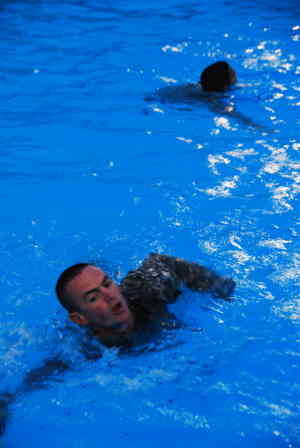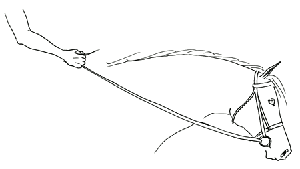Motivation & Willpower - Counselling London
If you can't fly then run,Martin Luther King Jr.
if you can't run then walk,
if you can't walk then crawl,
but whatever you do
you have to keep moving forward.

Aspects Of Will Whether or not we are in touch with our softness, there are many forms of will other than the traditional strong will and wilfulness - which when guided by love, is very necessary at times. (And there are moments when we need to push ourselves, make an effort, yet it doesn't always have to be "no pain, no gain" - for if we make things harder than they need to be, we can find more effortless ways to accomplish what we need, having more fun in the process.) We may also have ill will, goodwill (see also Wellbeing Of Others - Generosity Of Spirit, Altruism, Being In Service Towards Others, Acts Of Service), manipulative will, skilful will, loving will, unconscious will, etc. Sometimes our will can seem outside of our access, as if we have no will. How we apply our will is in our hands as is the ability to disidentify from what we need to. And the impact of willpower is very different, dependent whether it comes from our wounded self or from our adult loving self. It is self-discipline that strengthens our will to take loving action. Willpower alone may not be enough unless we take responsibility for ourselves. Alongside our will towards self-expression, connection, some of us may want to be in touch with the will, which is not only personal, and has a collective, universal force, creating consciousness with an impulse towards wholeness and synthesis (as Roberto Assagioli points out). Without much direction we can become carried along by fast flowing waters, unaware how to swim ourselves, or where we're going. This can be experienced as if we have no will. Recognition of will is a further stage, followed by having a will (self-identification). And lastly we can aspire to being will - "I am will" (a stage rarely reached). The personal aspects of will may be experienced as our self-expression, directing us towards integrating all aspects of ourself. The will is our closest expression of Self and can be experienced (often through existential crisis) as pointing towards our life direction.
Begin anywhere.John Cage
Goodwill Having, holding goodwill can be an undervalued quality. Goodwill is a choice we make for ourself, independent of others behaviour and can have huge positive effect on relationships, when we are no longer so reactive to others. Our goodwill can change the relationship dynamic when devoid of our anger, blame, criticism, withdrawal or compliance. (Goodwill doesn't necessarily mean being nice, because niceness can be a form of control if it comes with an agenda of "If I'm nice to you, you will be nice to me".) Goodwill includes having our own highest good and the highest good of others at heart, receiving joy from supporting others. Goodwill also includes being kind to ourself and others, valuing kindness as more important as being right, caring about how our behaviour affects us and others. When we hold goodwill, we are open to learning about our inner conflicts and these of others, devoted to doing our inner work, taking full responsibility for our own feelings of pain and joy rather than making others responsible for our feelings. Goodwill can be experienced as opening our heart and for some can be a part of spiritual journey.
If not now, then when.Hillel The Elder
Putting Our Life On Hold Initiating things may be a struggle for us, especially if we think on autopilot. Our narrative may be that "what really matters to us, what we want and need - can wait till later". Sometimes it can seem as if we live life as a rehearsal or are watching ourself from afar, feel disconnected, lost or stuck, dawdling, maybe half living, zombie-like as if waiting for life to happen. (I am reminded of an Eleanor Roosevelt quote "You must do the thing you think you cannot do".) The counselling & psychotherapy can look at where our will gets stuck, how our thoughts affect our actions and support us in addressing any procrastination, hesitation, self-doubt, depressed feelings, so we can begin to decide what we want - defining it, get hold of and run with our feelings, making things happen through our sense of presence, authenticity. Choosing courage, building relationships with other people embracing numerous experiences (maybe even books, films, etc.) can motivate ourself. I am reminded of the Stephen Sondheim quote "Opportunity is not a lengthy visitor". (See also Living To Our Full Potential)
If we wait to overcome obstacles - even looking for them at times, we will never start anything.

Freeing The Will None of us like to be held against our will, do things against our will, yet in some ways we may have allowed it to be captured or feel like we have lost control over our free will, affecting our personal freedom, individual freedom. Sometimes we need stillness and sometimes we need action. There may be an unacknowledged (conscious, unconscious) part of us, who has an investment in things not changing, and this aspect of us may initially need to be taken into consideration. Indecisive, we may have to find where our "No" is first, and only if ready, choose our "Yes". Our motivation may flow in cycles, peaks & troughs. Being in the moment, in touch with our momentum, our healthy pride, enjoying life or being enthusiastic can support us. For some it can be as if our will is captured by our desire, urges, old scripts, etc. Taking steps (maybe small ones or giant leaps of faith - sometimes into the unknown) we've never taken before can release us, which may sometimes mean taking a longer way home. Especially around our sexuality, sometimes diverting this will energy through sublimation or changing it into another form - transmuting it for a better good may be challenging. The counselling can offer support in disidentification, freeing the will (when we have a direct experience of our will existing), so we can mobilise our resources, free ourself and are able to act from our core self, without being in reaction, yet being proactive. Being in our own structure in our own ground may support us. Sensing and believing we have free will may be important for some. Being in touch with our own path may be important for others. Accepting us, who we are, our situation as it is, less burdened by expectations or having to do things the same old way, alongside what we tell ourselves influences our will. Not only do our actions have an impact on us & others, but so too do our inactions. Practising the power of focus, attention, concentration, observation sustained by our will, supports our ability to reflect.
It's time to move.


Momentum Some of us may be living life as if with a handbrake permanently on. Yet, it's important to discern when to keep going and when to stop. Linked to our free will, desire, vision, we tend to feel motivated, when our momentum propels us forward, when we have a goal towards something (placing our energy, attitude progressively towards what we want), rather than away from something (regressing by putting our energy into what's not right in our life, what we don't want). Capturing our ideas, allowing them to percolate, envisioning a positive outcome, builds momentum, helps motivate us into action, so we do something - taking the idea forward. Listening to and responding to our emotions - even the uncomfortable ones, to the winds of change may be the catalyst for change. Rather than forever ruminating, sometimes just doing something, starting it with action and movement, getting on with what we need to do can help kick-start and build our momentum, as we get the ball rolling (see also Procrastination Cure? - Mobilising Our Resources To Act). Sometimes we may feel frozen. Thawing out and creating a way to keep flowing forward like a river flows over, round, under and through obstacles, twists and turns embracing and being in the journey, in the moment, seizing the day, can propel our momentum, make us feel good especially when we embrace our emotions, spontaneity and surprises. Making and acting on our choices may give us impetus. Soren Kierkagaard writes of "Life can only be understood by looking backward;, but it must be lived looking forward". Finding our own momentum (often supported by the act of moving our energy, our body - doing something, e.g. walking, dancing, exercising, gardening, playing sport, something new or through breathwork, singing, chanting), moving from lostness, stuckness (or depression) to action (even small ones), moving forward, getting on with life may be our desire. Alongside working with you, viewing issues also as symptoms with a backstory and story going forward, the counselling and psychotherapy can be a space to look at what qualities in us foster our passiveness, activeness, what stops our momentum (see also Finding Our Way Through Challenges, Difficult Tasks & Unhelpful Habits - What May Get In The Way, Stop Us Creating Good Habits), what helps us be in touch with how we get ourselves moving, so we utilise our momentum, exploring the nature of our determination, patience, even the positive aspects of competitiveness.
I alone cannot change the world, but I can cast a stone across the waters to create many ripples.Mother Teresa
What Stands In Our Way - Stumbling Blocks, Obstacles, Reluctances Obstacles and challenges are a part of life and even if they seem impossible, we may want to rise to challenges (see also Life's Events, Challenges), face and overcome obstacles. Some of us can spend more time than we would like observing things, seeking meaning, stuck in our head, rather than taking the reins of our life, connecting to what matters, in touch with our emotions, vulnerability & tenderness, doing what we need to do, participating in the world, coming from our centre, grounded. We may feel confident and able to act in certain aspects, yet not in other areas. Caught in certain moods or unhelpful, habitual thinking patterns, negative thoughts and their meanings, we may tell ourselves that things don't work or that we will wait for this, that, yet never seem to get there. However motivated we are, we can also become unmotivated at times, or procrastinate. We may think so much about everything, which needs to be done, that things pile & stack up, so it may be understandable that we become overwhelmed. We may end up viewing obstacles as mountains, overwhelming to climb. As if we are looking at the problem from above the mountain we may be able to see the bigger picture, devise a strategy to overcome these challenges. Very practical solutions for some may mean identifying what the obstructions are, what we need to do, devising a plan to reach our goal, overcoming whatever is in the way, things we consider far too difficult. Viewing obstacles as challenges may ironically be our own challenge. Overly defensive or struggling to have compassion for ourselves, our stress, fear, anxiety, self-doubt or overwhelment can get in the way of what we want to change, prohibiting us from being in touch with our will and acting on this. We therefore need to take action to make things happen. Newer knowing what will happen can stop us in our tracks. Feeling inertia, as if we are in some sort of fog or lacking momentum (or being motivated to avoid, block things), sometimes it is as if our personal will seems stuck or has blown off course (as if we have no will or somewhere inside we steadfastly hold on to our will to remain the same). Lost or stuck, some people may want to move away from their passivity or vacant frame of mind, no longer wanting to be unmotivated, unfocused, or simply going along with things for the sake of it. When we are living in reluctance because we have to do something, this reluctance can spread throughout other areas of our life, rendering us less productive, fulfilled, creative. Changing this from having to, to wanting to may support us without giving up the value of powerfully living a soft life. Recovering our will, so we can access it again, saying "no" to things that aren't a priority, may be important for us, as may switching from doing things half-heartedly, with discontent (maybe rendering us feeling bored) towards choosing to be present in the moment, put our heart fully into things. The counselling & psychotherapy may explore the nature of our resistances and different ways of freeing ourself. So when any obstacles come our way we can look beyond what's in the way, reconnect to our purpose and look within to strengthen faith in ourself, looking ahead towards the bigger picture. And when we look beyond, look within and look ahead, it may give us clearer perspective upon the obstacle and why it's come our way, alongside what we may need to do to overcome what's in the way, connected to our purpose.
You can lead a horse to water, but you can't make it drink.Unknown

Chasm In certain London underground stations we are told to mind the gap before we board the train. And in order to get on the train we do so. For some of us it can be a huge gap between wanting to do something and doing it. Bridging our own gap may be important. The counselling can explore what goes on for us on this gap, looking at our "No" as well as our "Yes". Each of us have our own resistances, stumbling blocks (e.g. guilt, shame), stopping us moving forward, e.g. being caught in our wounded, fearful self, not being in tune with what we really want - what's relevant to our purpose, believing we've got to do it all on our own.
He who who says he can and he who says he can't are both usually right.Confucius
Our motivation makes us effective - in doing things right, being productive in what we do, whereas being efficient is more about doing things right - maybe better, faster (but not necessarily effective). A challenge may be to be effectively efficient and this helps influence our identity. Utilising external motivational influences may enhance, yet can also inhibit our personal motivation. For some of us our source of motivation comes largely externally, e.g. money can be a motivator for some, as can competitiveness. Seeking, needing validation, approval, affirmation, reassurance, confirmation, permission, recognition, appreciation, praise, attention, adoration, admiration, adulation, acceptance from others can motivate us at one level, yet we may struggle to access these qualities in ourself. If we base our sense of worth externally, this may affect the quality of our motivation. Sometimes others can spur us on, motivate us, encourage us, which can make a big difference, yet ultimately it is ourselves who access our own internal motivation. Utilising our internal sources of motivation linked to our purpose may be important for us - maybe through being curious, capturing our own ideas, allowing them to flourish, building our own momentum. These can be most motivating, satisfying, because their source is from within us and not based on the will of others. Spending time, allowing our ideas to develop, imagining, visualising the end result & benefits, can be motivating factors. Believing in our ideas can help motivate us into action, as we follow them through by starting to do something. The therapy can explore our external, internal sources of motivation further, including navigating between being and doing engaging tasks, interests, having openness to our light-heartedness, playfulness, carefreeness, laughter, fun and our sense of humour and practising resilience.
Let us do something, while we have the chance.Samuel Beckett "Waiting For Godot"
Accessing Motivation, Taking Loving Action, Acting From Our Personal Will, Heart Action is important, yet so too at times is inaction. It's about discerning, knowing. And also when we act differently, we feel differently. There is a quote from Courtney Stevens "Nothing changes if nothing changes" and without our personal will, we are immobilised and some may fear living. It is our very being and thinking things are important - making them important, that takes us to our motivation (see also Utilising Our Mind - Controlling Our Thoughts Affecting Our Actions). And as we capture our ideas, this can allow them to percolate, where we can envision positive outcomes, which build momentum. This in turn motivates us into action, so we do something - taking the idea forward. Motivation - our inner drive through our primary feelings & emotions (see also Drive Towards Our Emotional Growth), can be seen as our fuel, powers our actions, and it is the result of our actions, which also create our life experience. Transforming any unhelpful blocks (e.g. envy of others), connecting to the source of "our want" - having a personal will (and being conscious of our shadow), our life force and basic "Yes" to life (see also Willpower - Finding, Having & Following Our "No" Or "Yes"), may be important for us so we put our hopes, intention, passions, aspirations, focus and love into action, doing what it takes, taking action to make things tangibly happen because of the decisions we have made. Distinguishing between what we think we wanted and what we actually want at a deeper level - our deepest desires may influence the impact & quality of our will (see also The Gift Of Intuition & Inner Knowing - Gut Feelings, Hunches, Instinct, Improvising) as may whether we motivate ourself through fear, anxiety or self-compassion. Choosing to act as opposed to having to act - aligning our will with our heart and certainly motivated by love, rather than fear, may also support us, as may being with supportive others. Counselling & psychotherapy can explore this, alongside where our curiosity, ideas & understanding may be taking us, and how we want to get there, take action, often through gradual change (see also Life's Journey, Initiations - Connecting To Our Own Inner Journey, Direction & Creating Our Own Destiny). (It was Robert Louis Stevenson who remarked, "Don't judge each day by the harvest you reap but by the seeds that you plant.") When we act differently, we feel differently. Taking loving actions now (see also Taking Loving Action In Conflict Situations) boosts our intrinsic self-worth, impacts on our future life and may include:
- Attending to, rather than ignoring, our own feelings and needs
- Choosing to notice our thoughts & practising self-discipline regarding them
- Taking care of our body through good diet, exercise, getting enough sleep, managing our stress
- Creating a balance between work, rest & play alongside creative time
- Speaking up for ourself in conflict situations with others, speaking our truth without judgement or blame
- Treating ourselves or others with compassion & respect, rather than judgement
- Choosing gratitude throughout each day
You work so hard, just to end up at home crying yourself to sleep; remember you’re trying,T.B. LaBerge
you are moving mountains that have plagued you since you were young, and you’re trying so hard.
Keep fighting, fight until you have won.
Fight until you have found your way home, until the sun comes back and your heart learns to love the mornings again.
Our Drives From birth not only do we have an innate drive towards physical growth, so too do we have biological drives - drives towards emotional growth, sexual drives. Sometimes we can be so task-driven, we overlook who is driving - our self (see also Willpower - Finding, Having & Following Our "No" Or "Yes"). The therapy can also explore what tends to drive us in life - is it love/fear, pleasure/pressure, or bits of both.
To accomplish great things, we must not only act, but also dream; not only plan, but also believe.Anatole France

What Matters & Motivates Us We can choose to put our resources, priorities, and focus on what is important, what's short term or long term, what's essential, what we value, why we want something. The therapy can help explore this further, alongside the advantages, disadvantages of delaying our gratification when necessary. Being in touch with what's important - what we want in our heart of hearts, what's the right thing, what gives us a warm glow inside may boost our confidence. It may be important for some of us to reconnect to what puts fire or passion in our belly, what we enjoy. For others, coming out of our head may also assist as may accepting that we'll never get everything done. The counselling & psychotherapy will explore what empowers and matters to us (including our entitlement and what we will and won't settle for), our life focus, alongside our feelings, beliefs, the way we perceive reality as well as our aims, hopes, dreams (without being a dreamer), our imagination, inspiration, resourcefulness, creativity, aspirations, values, conscience, integrity, purpose, what gives us meaning. Aligning our will and intention to these qualities may be important for us (see also Willpower - Setting Our Intention). For some, our source of personal power & motivation may seem locked away (unconscious - maybe stuck), and for others - be present, yet not fully utilised or engaged with as we struggle to pursue things important to us, set our mind to a task (where a positive emotional state is more beneficial than the negative one), or be in touch with our strong, burning desires - not just a wish or a hope. Naming our explicit challenges, goals, may also enhance, sustain our motivation. (See also Laws Of Attraction & Manifesting What We Need)
Do we do what really matters, motivates us or what comes really easy for us?


Being In Touch With Our Deepest Desires, Passions Choosing desire over fear allows us to grow. Our intentions are our deepest desires, our primary motivation and we may want to be more in touch with the hunger and life force of our desires, passions. Yet we may allow the effect of certain experiences to dampen our passions, desires, which can drain our energy rather than radiate it. We may have suppressed, repressed our desires, passions, intuition, instincts, hunches, gut feelings, as if we're not worthy of our desire. Sometimes reactions to mistakes we make, our cynicism, sarcasm, pessimism, shame or guilt can inhibit our desires, passions. (For others shame can actually motivate us.) Bringing this out of the dark may help us. For others of us it can be as if there is an inner fog around us, that we are drifting, maybe caught in wishful thinking. Sometimes we may experience dim stirrings of desire, other times passionate desire and when our desire is strong enough it can cut through, over-ride our rigid or fixed beliefs. Being in contact with what emotionally moves us can trigger our desire, as can allowing our desire to percolate through us. Following through our desire with action may be important for us - maybe with small steps at first. Making time to discover and identify what bores us, inspires and invigorates us may be important, so we can live our life with passion, supporting our focus and direction in doing things we love, helping us through difficult times, live to our full potential. Experiencing plenty of things that stimulate our desire, being aware how we feel, tuning into this and reaching thoughts that bring enJOYment make us feel good stimulates our desire. Not just doing things, but being in touch with our desire, the warm glow of passion - the fire that energises us, brings us into an elevated mood. Following our momentum and vitality can not only inspire us and our creative expression, but also enable us to have a greater enthusiasm for life as a whole. Passion, like compassion - the quality we find in our heart (often experienced through our child within and learning to rediscover this), points us towards our desire, puts us in touch with our purpose, so we can be purposeful in all our actions. We may want to get our desire back - that non-rational part of us, locate and aim it towards our focus. Finding our way to courageously live our passion - following our desires and passion beyond what has been overly safe and secure for us, may be our challenge as may asking for what we need (see also Getting Our Basic Dependency Needs Met In A Healthy, Loving Relationship). Letting go of what we need to let go of (overriding any unhelpful self-doubt if we need to), discovering (or rediscovering) our passion - knowing it, so our gifts are unlocked, acting, and aligning our focus with our passion may now matter to us. Discovering and following our heart's and soul's desires - anchoring our desires, staying connected to them so they come out, allowing them to navigate us and giving ourself permission to speak our desires, get them met may matter to us. (As Rumi says, "Let yourself be gently pulled by the deeper desire of what you want".) As we allow everything on the inside to come out, our free will, free spirit, inner voice, our emotions, these tell us a lot about our desire. As we resonate with and notice our energy, our essence, values, this can help us tune in to our passion and become like our magnetic north as a compass points us towards our desire. Desire shapes our belief and is our motivating force drawing us into our body. Rediscovering our passion, sexual desire again because it got lost, crushed or shamed along the way may also be important without staying in our head or overly focused on sex, climax, orgasm, outcomes, performance, techniques, goals, positions, genitals, stuck in over-familiar roles. The counselling and psychotherapy can be place to get out of our head, discover what our body really wants, where our attention is rooted and we feel more alive, open to connection, willing to choose, express our passions, heart's desires through discovering our way to achieve our desires through action and exploring how this life force may support our inner strength, and relate to being in tune with us and the wider world. (See also As we relinquish)
You've gotta dance like there's nobody watching,William W. Purkey
Love like you'll never be hurt,
Sing like there's nobody listening,
And live like it's heaven on earth.
Achievement, Achieving Things Being in touch with what matters and is important, what motivates us, what we enjoy, may help us. (However being defined by our achievements, especially for men can be very stressful (see also Being Overdemanding - Our Own Taskmaster) and may get in the way of joy.) For some our self-doubt may get in the way of achieving things. For others we may choke under pressure. Converting our anxiety to excitement, enthusiasm, may assist us, alongside selecting the attitude we hold, being in touch with what we tell ourselves and building supportive habits.
Enthusiasm Enthusiasm makes the world go round, makes things happen and our enthusiasm can be boosted by inspiration, appreciating everything around us, life, living from our vitality, joy, do what we do with love, spending time with supportive people who inspire us. Yet sometimes our initial enthusiasm rapidly swings in the opposite direction and this can be explored in the counselling.
Freedom is different from revolt.Krishnamurti
A mind that is free from fear is capable of knowing great love and where there is love the Will can do what it will.

Our Will Energy - What We Do With The Will We may want to become more aware of the source of our motivation, how to discern, how we make decisions & what determines them (including our passions, thoughts, beliefs, perceptions, attitudes, templates, prejudices & biases, wishes, hopes, values, actions & reactions - noticing winds of change, how we deliberate & make up our mind to act, remain focused & carry out our intention). And when we are motivated, this boosts our esteem and we are usually more confident. The therapy may therefore review how we access & enhance our motivation, take charge of our own destiny, influenced by our own actions - in the context of our life also being a journey, what gives us impetus & how we put our volition - will (our emotional energy that drives us forward) into action. Mobilising our own resources to act and maintaining our focus, sometimes taking small, yet specific steps, (maybe through little yet increasingly significant acts of will) other times - a leap of faith, may support us. Things don't only happen to us, we can also influence them. Our influences to our will may include existential questions we hold, like "Why are we here?", "Where are we in our life?" and "What do we really want?" The act of willing has many stages requiring our engagement, effort & energy (see also Setting Boundaries Psychotherapy - What We Resonate - Noticing Our Energy, Vibration, Frequency, Energy Inside & Outside Of Us). Once we are in touch with our desire & intention, aligning our interest, knowing what we want to do, it can be a challenging next step to make a decision, so it passes through the threshold of our will, and then follow through with it, acting upon it, making things tangibly happen. We may be willful, disciplined, yet lack a light touch, be without love or lonely inside. The therapy may therefore include looking at whether the actions we take (will) are loving. Being in touch & collaborating with others in the world - not only our personal goals, plans, having a generosity of spirit, offering acts of service - may be further challenges beyond our own, individual empowerment. The potential of the human spirit knows no bounds and like a river we may want to flow freely, whatever the obstacles in our way, going with the flow and at times creating a new way to move forward, explore new landscapes, experiences. We may also want to get in touch with the power of will & existence beyond the personal - what some people describe as expanding to the collective (collective will), a universal web of energies or spiritual will, linked to life's purpose - as if we are being will. Experiencing this centre of will, we may find it easier to observe, direct & harmonise all our psychological processes, including the interconnectedness of our body, feelings, mind, sexuality, spirituality, feel in an elevated mood. We may experience a sense of consciousness in and beyond us. Aligning the momentum of the will (as if we are being will and our sense of time may alter), our endurance, may require less effort, and we may feel in a flow state more in the zone, where things chime with a sense of synchronicity a sense of interconnectedness. (For details see Life's Journey, Initiations - Connecting To Our Own Inner Journey, Direction & Creating Our Own Destiny)
Action has meaning only in relationship; without understanding relationship, action on any level will only breed conflict...Krishnamurti
The understanding of relationship is infinitely more important than the search for any plan of action.
The Effect Of Our Intentions Our intention - an aspect of our personal freedom, contributes to our experience and our intention can be experienced as a frequency - the energy propelling and determining our thoughts, feelings, actions. (E.g. are we setting our intentions from our wounded place or adult loving self?) Some of us can meditate for years in the attempt to achieve calmness of mind during meditation, yet outside of this space gets taken over by our intent to control. And we can't consistently change our thought without changing our intent. So if our intent is to learn about truth and love, our thoughts will follow this intent. Getting clear on what we want - clarity, supports our intention. We are free to choose with the intent to protect ourselves from pain (often through avoidance or control) or with intent to learn about loving. We may have an intention to know, protect or to grow, learn, be curious, which may affect our outcome (see also Taking The Long Way Home). Our moment by moment intentions affect and govern our life, behaviour, roles and feelings, so if we intend to protect against painful feelings, trying to control them we can end up abandoning us, experiencing anxiety, fear, emptiness, guilt, shame, etc. or turn to unhelpful habits or addictions. Sometimes we may act unintentionally or unconsciously (including in our relationship). These forces can pull us backward, yet also point towards our potential. Some of us may struggle in distinguishing the difference between our intention & desire - and the act of willing, doing it & making it happen, or be confident that our intentions are good, not doing damage to ourself or others (e.g. through manipulation, controlling). We may also have intent to control others, outcomes, which affects the impact of our will and picked up energetically by others. When communicating with others including our partner, we may want to decide upon the nature of our intentions, and if they are good, matching our actions to our conscious intentions. Our intentions, fired by what inspire us, are our deepest desires, which are our primary source of motivation and if our intent and desire is to learn, take responsibility for ourself, love ourselves and others - that what we put in, we get out, then this attitude and being honest with ourselves can affect the quality of our intentions, will and loving actions (see also The way we feel points towards what we attract).
You cannot change anything in your life with intention alone, which can become a watered-down, occasional hope that you’ll get to tomorrow. Intention without action is useless.Caroline Myss

Willpower - Setting Our Intention We have free will to choose our intent at each moment and they change over time. Setting our intention when we are in tune with our body acting as an anchor for us especially when love is a motive can be supportive (and can for some reduce anxiety). As we connect to our own inner choice, set our intention, the one that really matters, we can access our will, which can be released, and we can directly experience this volition. Our intention may also need to be reaffirmed with our self-belief, determination & discipline to see things through, make things happen. The counselling & psychotherapy can explore the nature of our intentions (see also Conscious & Unconscious Attitudes, Intentions, Expectations), how free our choice is to choose our intent, what lays behind and drives our intentions (e.g. our perceptions, attitude, elevated emotions, whether our intentions are sincere, supportive, good, divisive, whether our intentions fade away or we act upon them. Where our attention goes, our energy can flow. And on an energy level we can't hide our intention. (A challenge for some may be to turn our good intentions into action, without over-thinking them. A challenge for others may be to continually engage in the moment through examining what motivates our actions.) Our intentions shape our attitude and vice versa. So when fired by our desire, passion, whether our intentions are to love or control determines how we feel and live our lives. When setting our intention, we may want to clarify, strengthen our thoughts, utilise supportive mindsets, embody the qualities we would like, expressing the phrases or words that resonate with us, so this guides our actions. Choosing our intentions shapes our experience and for some, setting our intentions on rising each day (e.g. making a conscious intention to be loving, have compassion, courage, speak our truth), aligning the energy of our intentions (whether we are open/closed, loving/unloving, accepting/judgemental, kind/unkind, soft/hard, flexible/unyielding) with our free will, choices, actions, focusing on them, concentrating through our discipline, may support us, alongside building, maintaining supportive habits. We may also be curious about karma and the essence of our free will - our intentions and life's intentions through everyday experiences, gifts (not necessarily pleasant ones) nudging us towards our purpose. The counselling may also explore how our feelings (e.g. fear, anger, love), expectations, moods, needs, values, beliefs, thoughts, judgements, etc. inform our intentions, differentiating between how we are and how things should be alongside our responsibility for our intentions notwithstanding unforeseen circumstances, outcomes or that we give inaccurate weighting to consequences. And when our intentions are in mind, we may need to align our body and feelings, so we live on positive emotions - not from negative ones such as fear, anger, frustrations, etc. Not only do our feelings inform our intentions, but our intentions can inform our feelings. And we can't change our intention unless we are aware, conscious and pay attention to our current intention (so if our intention is to resist control, we will stay stuck, unless we choose a different intention, e.g. to love).
Whether you think you can or whether you think you can’t, you’re right.Henry Ford

Willpower - Finding, Having & Following Our "No" Or "Yes" Willpower alone may not be enough to motivate us, yet without it in some form we may struggle to move forward (see also Living To Our Full Potential). What we do with our will, directing our attention, concentration towards something important and sustaining it may be an issue for some. Applying ourself, building up our strength with small acts of will, so we can overcome similar and more testing situations, may strengthen our will. Some of us may have difficulty deciding, completing things. Others can start off enthusiastically, yet it doesn't last. This may point to a familiar experience of once having decided to do something, that this brings about one emotional response with some initial enthusiasm and then later having a very different emotional response, swinging the opposite way. Imagining completing the task with a positive outcome can also boost our momentum. Other factors, which may stop our momentum, may include the attitudes we hold (including our attitude towards risk) and the level of interest or passion we have (see Being In Touch With Our Deepest Desires, Passions). Going against our will, trying so hard may be counterproductive. Being in our own inner authority, allowing, choosing & aligning our self to follow the impetus of our "No" or "Yes" may be our challenge - see also Assertiveness. (This may also apply in our sexual life.) The counselling & psychotherapy may explore what we have invested in not changing, doing something, alongside our investment to change and act. Taking charge, control of our choice (and the will energy of our anger in our "No" to certain things) may be important, as may refocusing our aim and knowing why we want to achieve something. Acknowledging what is out of our control may also support us. Whether we get involved, rise to certain challenges and how we use our will is up to us. Our very being and willpower enables us to overcome inertia, control our impulses, which can get tested, when we have to decide between what we would like to do and what is best for us - what we really ought to do, acting from our best will, so it adds to our life. Our willpower can help us resist short term temptations, supporting us to meet the long-term goals, our what we value. Sometimes sitting on the sidelines and not doing something is the right choice for us and saying "No" to something (see also Counselling For Setting Boundaries & Parameters) can be a "Yes" to us, when we follow through with what we really want to do - what really matters. Knowing our "No", times when to stop may be important. For those of us who never give up, sometimes it may be wise to quit what we are doing, if it's not making us happy or no longer meaningfully serve us. We may want to give ourself permission to stop, say "No" (see also Counselling For Setting Boundaries & Parameters), whether it's an idea, project, habit or even a relationship (see also ). There may also be a part of us that wants to change, yet another who is stopping this, even sabotaging things, maybe unconsciously. And this wilful aspect of us can also be explored in the counselling & psychotherapy alongside the promises we make to us and others. Some of us may have a type of binary response to our will, turning it on or off. Entering into the spirit of life, taking the reins of our life, moving from being the passenger to being in the driving seat, taking ownership of life, allowing our will to flow in fluid ways may support us.
What this power is I cannot say; all I know is that it exists and it becomes available only when a man is in that state of mindAlexander Graham Bell
in which he knows exactly what he wants and is fully determined not to quit until he finds it.
Willpower & Persistence - Our Resolve It is part of the human condition to persist, even though circumstances are not ideal. How determined we are and how long we are willing to persist, what faith we have that we will eventually achieve what we want may be important factors. The therapy may therefore explore your persistence, perseverance & determination - what happens to it when stretched or in uncomfortable situations, setbacks, what rituals are supportive or unsupported. Picking ourselves up after a fall, pulling our self together finding our way through things, letting go of our comfort zones can be a challenge to us all. Our resilience & personal boundaries can give us inner strength, support our willpower, so we can take the right action, focus, control our impulses & reactions. Using our will to hone our focused energy, so it's not displaced, may be important for us. Being in touch with our want, calling upon the inner strength of our willpower to maintain focus and take the right action can be a challenge. It maybe a concern for some to make a commitment with our resolve & sticking to it, so our enthusiasm doesn't peter out like a firework. Others may want to remain focused, putting their attention where they want to put it, concentrate, avoid distractions, tiredness, boredom. Training our willpower over time supports our self-control, builds up our tolerance, stops us from giving into temptations, re-focus, avoid roads we would not rather go down, stay on track, so we can protect & nourish the things worthwhile in our life. No longer basing our worth on how others see us, how we would like to be seen, in touch with our intrinsic worth, may align our self with what we want to do. Being in touch with our self-worth may support us in taking action to address our concerns. The counselling & psychotherapy can also explore whether the actions we take are unloving or loving ones. We may also look at the role of courage (e.g. in putting trust in us and in our actions, even when afraid), hope, self-doubt, compassion, personal faith & trust.
It has been my observation that most people get ahead during the time that others waste.Henry Ford
Our Perseverance Perseverance steers us through distractions, driving us through setbacks, failures. Knowing when to give up on the right things (and not as a knee-jerk option to easily give up), for the right reasons and when to persevere, can be explored in the counselling as may finding ways to cultivate our own "stickability", perseverance, focus, attention, concentration - supported by visualising our goals, self-discipline & determination.
We do not need magic to change the world, we carry all the power we need inside ourselves alreadyJ.K.Rowling
Power/Powerless - Ways Of Using Our Power We all have a need to be empowered - from a basic need to be seen & heard, our need to be in control, connect with others. We can feel powerful and powerless in different areas of our life (maybe based on some of our identities - some of which hold power, others - oppression). When we are in the position of power, we are likely to have certain privileges, resources, benefits, opportunities, and this may feel normative. Some may have a sense of supremacy, feel dominant. When we feel powerless, our opportunities and benefits reduce and we may have less resources, lack opportunities, a sense of autonomy, and especially if we are in a minority, we may feel oppressed, "othered". How we are without our power reveals who we are. Sometimes the need to be seen as strong, liked, popular, may influence our power style and we can use our power in many ways, each may have advantages, disadvantages in influencing others:
- Feeling personally empowered
- Hierarchical, positional power - inheriting power because of power imbalance in our favour
- Power over others - often decisive & goal-oriented, forcing people to perform through reward, punishment or being controlling
- Creative power - creating circumstances or an environment in order to harness the potential of our power, leadership
- Conceding our power - unwillingly giving our power away through fear
- Yielding our power - willingly giving our power up because matters are out of our control, acknowledging that some battles aren't worth fighting for, or for a greater good, helping to maintain balance between others
- Fighting for what we care about, believe in
- Using power with a light touch - subtly inspiring, encouraging others, aiming to achieve desired results, empowering others - supporting others use their own power effectively
- Value-based power - motivating us and others through our values, vision, purpose
- Relational power - connecting with others, building trust & respect in order for our power to be followed
- Powerfully loving - loving powerfully, being powerful with love
- Being potent
- Power to love unconditionally
- Being spiritually powerful
It is not power that corrupts but fear. Fear of losing power corrupts those who wield itAung San Suu Kyi
and fear of the scourge of power corrupts those who are subject to it.
Abuse Of Power Holding rigid boundaries, some of us may have a strong need to have power over others (e.g. be the controlling one in our relationship). We may have become manipulative. The power influence we can have over others can be from our fear (often of losing something from an externally based sense of power). And when our fear is the driving force, we can instil this fear in others, wanting to control others, outcomes. Love of power may be present. The power of love may be absent.
Nearly all men can stand adversity, but if you want to test a man's character, give him power.Abraham Lincoln
Unhealthy External, Overt, Covert Power Dynamics We may want to challenge, not collude in unhealthy power dynamics, where there is injustice, inequality, power over others at all costs, unhealthy competition, unsustainable social structures, especially those affecting the planet by government, multi-national corporations, technological innovators (e.g. AI). It may be important for us to have our own integrity, be in our own authority, so we don't have to automatically conform, or seek external validation.
Seeking Power Externally When we base our sense of power externally, we need to be seen as better than others or become dependent on them for validation, approval, affirmation, reassurance, confirmation, permission, recognition, appreciation, praise, attention, adoration, admiration, acceptance. Others may give their power away to others through fear of rejection, abandonment. We may have allowed others to determine our values. Yet no one can take our personal power away from us nor determine our own values, or higher truths that reside in us.
Disempowerment - Blocking Our Own Power Feeling insecure blocks our sense of empowerment. Some of us may have learnt to inhibit our anger through pleasing, rescuing, pleasing, fixing, being overly nice, or making lots of excuses not to do things. (Also hiding any angry parts may disempower us at a cost of not truly living.) Others may have core, existential life feelings uncomfortable feelings (e.g. envy, jealousy), worries, be stuck in our head or caught in drama triangles, struggle to manage our hurt, pain or forgive, all of which we may allow to sap our energy, block our power and sense of personal empowerment and the therapy can be a space to look at what we do (or don't do) - see also Therapy For Men's Issues - Men & Power. We may want our feelings, thoughts, decisions, etc., to be our own, to take ownership of our life, remain empowered, be in our own authority & in control, take responsibility for what matters to us, even though we may feel helpless at times. The counselling and psychotherapy may explore what needs transforming in us.

Power Within - Our Inner Strength, Inner Will - Being Internally Powerful, Personal Will, Personal Power, Personal Empowerment We may want to trust our intuition, gut feelings, stay in our own power, not give our power away to anyone (not our partner, family, friends, colleagues, authorities). Being empowered, self-aware, aligning love and will, our love with our power (powerfully loving, loving powerfully and standing in our truth) in touch with the driving force of our inner will and power from within - the power in all of who we really are and showing it to the world may matter to us. Being independent (yet also owning our dependency, interdependency, etc.), confident in our own agency, own authority, in our Self, speaking our truth, surrendering, releasing our resistance, letting go of what we need to (including people, things in our lives that no longer serve us) taking action when we need to may also matter to us. This supports our self-worth. We may want to explore how real power does not come from wealth, external forces, but is rooted in Love, compassion from within the inner sanctuary of our heart and spirit. We may underestimate our power - for there is always something we can do, and want to consider the following:
- Our power is also our attitude to what we create
- Not taking things so personally, or always literally
- That love is an act of will - love in action
- That our power, inner strength, resides in love, joy
- Being in touch with & owning our vulnerability, insecurities & powerlessness (even helplessness at times) that we have little power over others or events, which are outside of our control can paradoxically empower us, especially when we no longer seek power externally
- Self-acceptance and loving ourselves
- Not confusing power "over" with power "within"
- That our authentic power and inner strength is connected to being self-assured, personally responsible, with our personal integrity intact
- That only we can be in touch with, create our power when we authentically and compassionately live from the heart & soul of who we powerfully are, being present in the moment, trusting our self, our innateness, in touch with our home truths
- That our personal power and inner strength can be experienced as our personal will driving our motivation and how we use the power of our will is in our hands, putting us in touch with what we value
- That we can feel more empowered by taking charge of and running our own life (and being in touch with what "charges" us - noticing and harnessing our energy, inner will and what we resonate with), by being fully in touch with and aligning ourself with our nature, living from this place, alongside our vitality, intention, our inner wisdom, vulnerability, tenderness & strengths, making them work for us - focusing on these and less so any weaknesses
- That by taking ourselves outside our comfort zone and taking risks, we can build our inner strength, through focusing on our positive qualities, supported by past positive experiences, when we demonstrated our inner strength
- Staying strong inside, in touch with our inner strength, being resilient with our own, distinct boundaries, anchored, solidly grounded in our body, being confident, deliberately taking control, so we are not easily blown off track
- Being in control of our own actions, reactions
- Making clear, conscious choices
- Being in our own authority
- Disconnecting from life's distractions, devices, etc. giving time to reflect in order to build our inner strength
- That our inner will, inner strength can also be supported by us being physically fit and not necessarily aggressive, which in turn supports our emotional resilience and capacity to have mental and physical resources to overcome all sorts of difficulties
- Being in touch with our power to remain calm, remain centred be loving
- That we can align our love to empower, be potent, inform our actions, so rather than do things half-heartedly, we put out heart whole-heartedly into things. This energy of our love in all its different forms can be felt, known by others (see also What Is Transmitted, What We Attract, Repel in our relationship), synthesising our power with our love (which is more attractive than neediness)
- Asserting ourselves when we need to
- That we may want to develop our thinking capacity & interpersonal skills to support our leadership skills, becoming powerful, influencing others in the best ways possible
- Giving more than taking
- That being with empowering, encouraging others affects our own empowerment
- That when we feel powerful we also have potential to be more creative
- That when we are courageous, powerful & loving we may want to empower others, using our power in service of a greater good without ownership of people or resources
- That we may want to be in touch with or explore a Love & Will beyond the personal, of a collective, universal or spiritual nature (see also In Tune With Us, Community & The Wider World, Our Interdependence, Interconnectedness, Oneness, Unity, Harmony
Protecting Our Personal Power The experience & sense of our personal power is within us, and when our power gets depleted, things become more difficult and may affect our sense of identity. We may feel lost, stuck, impotent. (Nick Cave writes of impotence "Rather than feel impotent and useless, you must come to terms with the fact that as a human being you are infinitely powerful, and take responsibility for this tremendous power. Even our smallest actions have potential for great change, positively or negatively, and the way in which we all conduct ourselves within the world means something. You are anything but impotent, you are, in fact, exquisitely and frighteningly dynamic, as are we all, and with all respect you have an obligation to stand up and take responsibility for that potential. It is your most ordinary and urgent duty".) Noticing how we may give our power away, e.g. allowing others to control us (especially if we are sensitive) and eliminating this may support us. We may also allow the impact of our past, old wounds, sensitivities - allowing others to get under our skin or be sensitive to criticism - even from ourself, to erode our personal power. In relationships we may want to be in touch with our own autonomy as well as being part of a couple and be aware of what we transmit. If we worry so much about upsetting others, not being authentic or out of touch with our intrinsic self-trust, our sense of personal power may erode. Counselling & psychotherapy can explore what hinders and what enhances our personal power, potency - so we protect it and it replenishes us. Plugging into our sources of power may include:
- Creatively transforming our weaknesses into strengths
- Knowing what drains our personal power, e.g. thinking too much, always having to keep busy with distractions, emoting too much, and reducing these, recharging ourselves,
- Paying attention to our resources & what energises us, tapping into our own inner power
- Taking charge of our relating states
- Being with inspiring, supportive people, who have a sense of their own power
- Having regular exercise
- Taking breaks, stopping to relax, rest and gather ourselves for a few moments when we need to
- Stilling our mind
- Letting go of what we need to let go of
- Acknowledging our own helplessness (which ironically can empower us)
- Being in touch with what regenerates us
- Being potent
- Coming from our own inner authority
- Taking responsibility for our life
- Our sense of coherence, inner continuity
- Supporting our general well-being
- Spending enjoyable time in solitude with periods of reflection
- Utilising supportive self-talk
- Meditating
The Power Of Our Determination & Inner Discipline When things become tough, in some situations it may be best to quit and other times not to. (Transforming any stubbornness to the useful power of our determination, strong will, may also help us.) Rather than "I can't", "It's not worth it" we may want to tap into our determination, so we persevere. We may need to revive & affirm our determination, boost our enthusiasm, inspiration and power to make our intentions happen. When we are determined and things become difficult, tough (even boring) we don't let anything get in the way. Our determination gives us momentum - propelling us to organise and to fulfil our intention. (However, some of us may have a conscious, unconscious fear of failure, fear of success, which can be a determining factor, and this can be explored further in counselling, psychotherapy.) Determination breaks through fear. Countering our self-doubt, re-framing any negative thoughts (e.g. "It's not worth the effort", "It's too difficult". "I can't") by sowing the seeds of our determined thoughts in what we positively tell ourself (e.g. supported by a "It is possible", "I can", "I will", "Everything of value is worth the extra effort" attitude, our reassuring affirmations that we can do it, are capable, that things are possible if we put our mind to it) can propel us forward, support our actions, this supports our perseverance, ability to try again, take an extra step. And as we tap in to our determination, this supports us through barriers of frustration, boredom, doubt. Staying in touch with our goals & plans, can support our determination, not allowing anything to get in the way, enabling us to move forward until we get when we need to get. It is our need that can be our driving force to get or achieve what we want (as Plato stated "Necessity is the mother of invention"). Our positive determination & drives can make things possible, yet when we don't get immediate results, we may become restless, impatient, struggling to understand that some things take time and happen when the time is right. In order to achieve things, balancing our determination, discipline and dedication with the right level of pressure, compassion or patience - that all things have their time, allowing us to keep going, stay persistent supported by acknowledging that things of value are worth our effort. The disciplines we bring into our life can start off small and gradually increase as we get used to them (see also Building, Maintaining, Scheduling Supportive Habits, Routines, Rituals, Patterns). Our self-discipline, fired by our desires, passions, willpower and concentration supports us in what we need to happen and doesn't have to be harsh or hard, when we compassionately link it to our commitment, focus & goals (supported by visualising them being achieved). When this becomes challenging, our determination can persevere, supporting our resilience. Inner discipline can be experienced as tolerating uncomfortable feelings, emotions (see also Overwhelmed By Feelings - Managing, Balancing, Overseeing & Transmuting Our Emotions) so we are emotionally resilient, emotionally stable, alongside taking charge of our behaviours, actions. We may want to enhance our self-discipline, perseverance - supported by our boundaries, so we can consistently stick with what we are doing. Although being determined can be a key to our success, being single-minded and persistent, not letting things get in the way, we may need to watch out for becoming stubborn, so we balance our determination with flexibility, patience, lightness (see also Openness To Our Light-Heartedness, Playfulness, Carefreeness, Laughter, Fun & Our Sense Of Humour), kindness in order to get the right result with the right quality at the right time. And conversely, most of us believe that never giving up is always beneficial, yet sometimes quitting is the wisest, courageous thing to do (this could be a habit, a relationship, a project if it doesn't add value to our life, where letting go and making space to what truly matters can enhance our life).
Distinguishing Between What We Want & What We Need Sometimes our wants and needs can be aligned. On other occasions what we want may tend to come more from our old wounds or ego-driven self (see also Living As If Only We Count) and what we truly need may come more from our core self, simplifying things. We may have many wants, yet behind our wants may live our needs and when defining our needs, we may also want to distinguish the difference between our actual needs, whether we really need it and our strategies of how to get there with our needs. The counselling and psychotherapy can be a space to explore the difference between our wants and needs, the qualities of both.
Laws Of Attraction & Manifesting What We Need The way we feel points towards what we attract and what we want may sometimes manifest in unpredictable, surprising ways. Each of us may discover and utilise our own creative processes, which help manifest & bring into form what we want, bringing it into consciousness (this for some may include being in touch with abundance - a belief that we already have everything we need, we are as prosperous, abundant as we feel, in touch with universal good, infinite creativity, karmic energy). The attitude, place we are coming from (see also Procrastination Cure? - In Touch With Us, Our Values & Goals), how in tune we are with ourself, the wider world, interconnectedness, that our will is aligned, whether we remain open, influence how the laws of attraction impact outcomes. "Like attracts like" - states the law of attraction. (For example, in relationship we may attract people at our common level of health or wounding - a higher or lower level of frequency.) If we oppose laws of attraction, this may not help manifesting what we need. This includes coming from our wounded self or attaching our joy or self-worth to achieving our goal - attaching our happiness and worth to what we want, being unconscious about our true intent - often linked to having control over others' outcomes, thoughts (this creates misery and pain, resistance and fear of being controlled by others), reliance on God's will without also aligning our own will, ourself. (And even if we try to surrender control, this too can be a form of control when coming from our wounds). This energy creates suffering and adversely affects our intention behind any affirmations we make. Supportive processes towards manifesting our needs may include:
- Aligning our intention from our loving adult self
- Being appreciative, grateful for what we have in the moment
- Tuning into our gut feelings, instinct, intuition
- Searching, clarifying, being precise with what it is we really desire - the quality of this, knowing what we don't want, being clear what we do
- Getting in touch with the part of us that really wants what we want, visualising what we want with positive emotions
- Focusing upon putting in writing what we want
- Feeling good by attending to our thoughts & physical body
- Experiencing, expressing appreciation, gratefulness, gratitude
- Increase our focus, determination, discipline, confidence & positive emotions, repeatedly being in touch with our vision & envisioning the reality we wish to be true (visualising the details and our achievement doesn't guarantee success or replace taking action)
- Being aware
- Embracing our potential
- Focusing our energy & momentum towards our purpose
- Envisioning, setting the scene - our scene, generating feelings, imagining & living as if they are manifesting
- Being congruent with our beliefs, so our daily actions align with our beliefs
- Setting clear messages, providing rituals & habits, released outwards into the world
- Being in touch with supportive others - building a circle of people around us
- Experiencing uplifting activities
- Aligning our mind with, surrendering to any spiritual connection we experience, co-creation
- Experiencing mindfulness, meditation, prayer
- Tapping into consciousness in & beyond us
- Surrendering to the field of possibility
- Accepting that we can't control outcomes, manifestation is not guaranteed
- Having faith & trust
- Setting our conscious intention to manifest what we dream & let it happen through
- keeping our frequency, vibrational energy high, affecting what we do. Universal laws are said not to respond to our words & actions, but more our vibrational calling - that variation are a match. "That which is like unto itself is drawn".
- Opening our heart
- Taking loving action
- Allowing the universe to sort out the details
Nothing happens without action.Albert Einstein

Finding Our Way Through Challenges, Difficult Tasks & Unhelpful Habits - What May Get In The Way, Stop Us Creating Good Habits Overcoming challenges, managing our anxiety and whatever is in the way for us can be challenging. It is said old habits die hard and recognising the negative effects of unhelpful old habits, acknowledging that we are more than our habit, that we are not our habit, we have fresh choices may support us. Taking time to pause, reflect think about our moods, attitude to taking risks, to change, embracing this may initially help us. Yet for others, the more we think about challenges or something new, the more daunting it can become - we can make things far too difficult, and just stepping over this - deciding to be up for the challenge and doing it can give us the impetus we need. Breaking unhelpful habits, patterns, replacing bad ones with good ones, letting go of unhelpful regrets, judgements, noticing our feelings, holding them & expressing them at our will, utilising our self-control may help us, as may spotting and responding differently to any personal triggers or addictive triggers, which get in the way. Integrating peace of mind, contentment with action may be a further challenge. Sometimes we need to do what we don't want to do. Not everything we do or need to do may be enjoyable, likeable, yet certain tasks need to be done. Forcing ourself to do it (or finding others to do these tasks) are some options, yet uncomfortable inside, we may have internal reactions to change, refusing to take the long way home, learning what we need to learn. It may also help to get to know what works best for us - whether we best respond by building momentum, doing easy tasks first and building up to the difficult ones or starting with the difficult tasks first to get them out of the way and when we are more focused, have energy and willpower (valuing, remembering how tasks contribute to the bigger picture, choosing positively, can be a motivation for some). Repeating things helps us remember. And through stretching ourself a little bit, being willing to move out of our comfort zone, implicitly repeating things - thoughts, feelings, actions until they become familiar, easy, automatic and routine, naturally effortless and unconsciously they can become second nature. Creating the optimum environment (selecting an enjoyable location, aromas, listening to something we enjoy, etc.) can make experiencing our tasks more conducive as can planning a treat or reward for ourself when completed. (See also Building, Maintaining, Scheduling Supportive Habits, Routines, Rituals, Patterns)
Luck Is What Happens When Preparation Meets Opportunity.Seneca
Origin Of Habits Some ingrained habits we have cause problems to us and others, which may have origins in our past. In our formative years we develop habits which we have learnt that give us rewards, love, approval, etc. With those painful feelings, we may have also developed a habit of abandoning ourself rather than loving ourself and sharing love with others. These habits may take the form of avoiding, protecting, controlling through our behaviour, staying in our head, judging our feelings, turning to unhelpful habits, addictions. Tuning into our body, feelings, being loving to ourself can nudge us to developing supportive habits now in our life. (See also How To Stop Procrastinating - Our Inner World)
We are what we repeatedly do. Excellence, then, is not an act, but a habit.Aristotle

Building, Maintaining, Scheduling Supportive Habits, Routines, Rituals, Patterns When we want to change a habit, we may want to focus on who we want to become rather than what we want to change. This aligns our habits with the person we want to become, so for example, rather than focusing on eating healthily, we place our focus on becoming a healthier person. We may want to slowly change some of the patterns in our life, complacency, ingrained habits, breaking out of the old cycle in thinking, feeling, doing, by making different choices. It is said "old habits die hard" and one way to let go of unhelpful habits is to slowly introduce new ones of our own choosing. Repetition makes a habit. Yet before we are willing to change, develop new habits, create good habits, routines, the counselling and psychotherapy may need to explore the part of ourself that stops us including any guilt, shame we carry. Knowing our own learning style may also support us. (For some of us hooking up our new routine to existing routines, activities, can act as a behavioural cue.) Taking small incremental steps through the regular, predictable things we do have a ripple effect, can help give us a structure, support our wellbeing, enhance our life, transform our muscle memory. We are all creatures of habit - even unhelpful ones (see also Internal Reactions To Change). These habits are often automatic responses learnt through repeated actions to situations (affecting our muscle memory). Asking ourselves why, what, and how, can help us form new habits and incorporating a small task just for 10 minutes into our daily routine can help integrate our new habit, as can just doing one small thing differently and as Rita Mae Brown states, "Insanity is doing the same thing over and over again and expecting different results". (There is also an anonymous quote, which goes "If plan A doesn't work, remember the alphabet has 25 more letters".) Our habits change through regular practice and tend to form more quickly when enjoyable, purposeful (and especially inspirational), enabling us to free up mental resources for using elsewhere. And when we are in touch with our desire, passion to achieve our goals, alongside our willpower and concentration, what we want, are hoping for, imagining the successful outcome and are willing to make a lot of effort, this can support our motivation. Expanding our behavioural settings, trying things we haven't tried before, initiating small, incremental, achievable changes (changing & implementing our goals & plans along the way and keeping these goals in mind), may help us grow. We may want to take control over decisions we make, scheduling time for us, putting our focus where we need to, mentally rehearsing each step towards the new habit we want to build, imagining our desired future (see also Becoming Our Vision, Visualisation, Envisioning The Reality We Wish To Be True). Supportive self-messages may include "I will be / do ...", "I haven't done ..., yet", "What if I ... what would it look like, feel like - how can I envision my desire outcome." Being in touch with our determination and discipline (see also Beliefs & What We Tell Ourselves) and reminding ourselves how it contributes to the bigger picture, lessening the activities that don't enhance us, can also support new habits. Following the life-force of our interests, prioritising time to spend on the things that do matter, that are meaningful and nourish us (see also Being & Doing - Dilemmas We May Hold), can help us, as may practising supportive rituals, being in touch with supportive others. And using rituals to think about how we are going to do things, prepare (as Confucius said "He that would perfect his work must first sharpen his tools.") marking beginnings and endings, can also assist, as can slowly increasing incremental disciplines. What we gradually choose & decide to do with our time - the habits & lifestyle we form and tracking and recognising our progress, what we prioritise, the resources we utilise, the solutions we create, can help us move forwards, significantly affect us & outcomes, achievements, our quality of life, health (and thought patterns). Where our attention goes, our energy flows. Setting our intention, the attitude we hold and whether we do things with heavy or light touch, our reward system may also affect outcomes. Directing our efforts towards enjoying new benefits, enlisting the positive effects, taking some risks and preventing ourselves from returning to old, unhelpful behaviours, routines, patterns or relapses, may support us. As we choose to take the longer way home at first, adapting to change and sticking to it may call upon our, courage, resilience, yet at the same time we may need to take care of our vulnerability, tenderness. The actions we repeatedly perform (and persevering through setbacks) can become automatic habits, which create our own destiny, with the potential to become unsupportive or supportive distractions. Following the impetus of our intention, reminding ourselves of our values, committing to positive behaviour, can help us flourish & manage setbacks along the way, supporting our will. Taking charge of & changing our behaviour and starting something, breaking this down to our next action can give us impetus, momentum (see also Procrastination Cure? - Mobilising Our Resources To Act). And when we practice & repeat these actions, freeing ourself up (see also Free Will & Relationship To Fatalism, Preordainment, Determinism, Indeterminism & Randomness, Karma, Nature & Nurture - Dilemmas, Challenges), our supportive habits get stronger, more familiar & available (and can also support us when stressed, tired), as our actions become natural, second nature, more automatic, through our repetition and eventually require less effort as our body knows how to respond as well as our mind, as our new patterns of responses become habitual innate, second nature, more effortless.
Action without vision is only passing time, vision without action is merely day dreaming,Joel Barker & Nelson Mandela
but vision with action can change the world.
Specific Questions About Self-Motivation, Willpower Questions We may have certain questions about self-motivation, will power, e.g.:
- What is willpower?
- What is personal will?
- Strong will - is it helpful to be strong willed?
- What is self-motivation? How to get motivated?
- Motivational techniques - are motivation techniques enough?
FAQs about the motivation Counselling London practice based in Kings Cross, Camden:
- What is the frequency of motivation counselling in London, Kings Cross?
- How many motivation counselling in London sessions do I need?
- How much does motivation counselling London cost?
- Must I visit your London counselling practice in Camden or do you offer Zoom or Teams counselling, online counselling?
- What are the advantages and disadvantages of offering online counselling, Zoom or Teams counselling or in-person counselling in London, Camden, Kings Cross
- Do you only offer motivation counselling in London, Camden or Kings Cross?
- What times do you offer motivation counselling in London, Kings Cross or Camden?
- How do I contact a counsellor in London, Camden, or near Kings Cross?
- How effective is motivation counselling in London, Kings Cross, Camden?
- What can I expect from the initial session of counselling London?
- What to expect from the other motivation counselling London sessions?
- What is the typical duration of the London counselling services in Camden, Kings Cross
